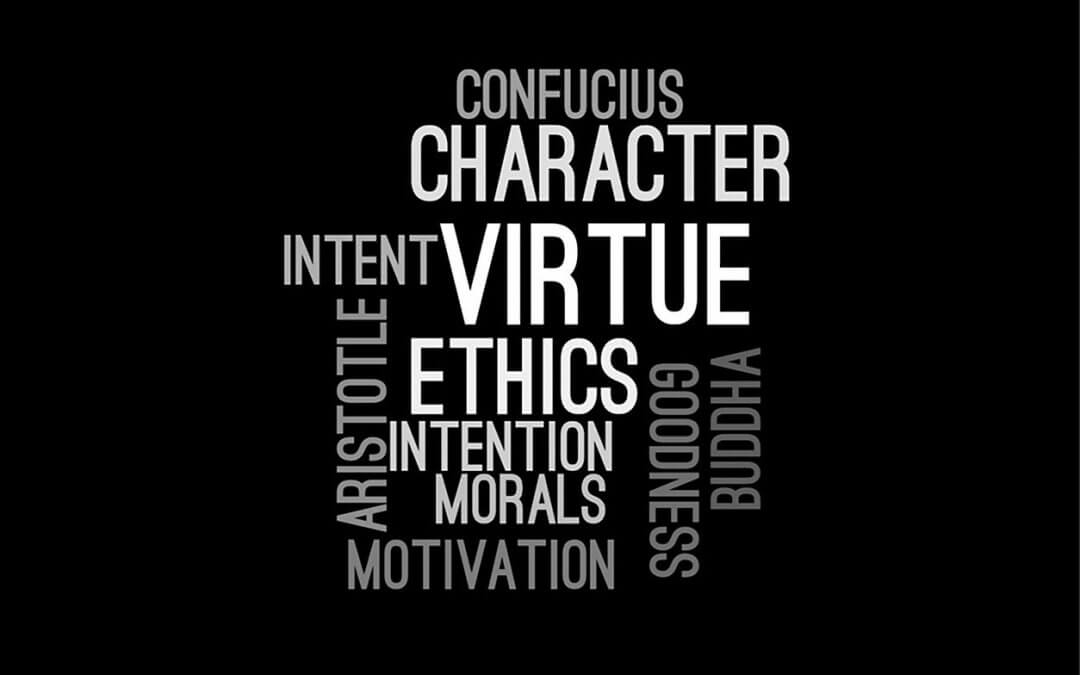Core Values
I have often written about the importance of a company’s Core Purpose and its Core Values. The organization’s Core Purpose is why it exists and gives everyone an understanding of what it does. The company’s Core Values explain how the company expects its employees to behave. The purpose of these is to align behavior across the organization and thus produce better results. In many cases, the Core Values are short and need corporate folklore around them to provide context. However, given the organization’s Core Purpose and Core Values, most people should determine how to respond to a situation that works in the organization’s best interests.
As Jim Collins says, you would take a hit to profits to ensure you live up to your Core Values. Thus, there are no outs from Core Values. That is the way the organization behaves, and there are no exceptions. Because of this strictness, I genuinely believe that Core Values need to be framed by folklore and corporate history to give them context. Humans relate to stories, so stories of why these values are essential and how we should interpret them will enable your employees to understand and adopt them quicker.
Instilling Core Values into the Organization
When recruiting employees, it is useful to look at their prior employer. If the organization they worked for before had very different Core Values, they are unlikely to fit within your organization and add value. For example, if their prior employer was Stratton Oakmont and one of your Core Values is to treat customers with respect, they are probably not worth interviewing. Most recently, Forbes has published a piece, “A Truth Reckoning: Why We’re Holding Those Who Lied for Trump Accountable,” where they argue that those who lied should not be hired, and if any company does hire them, Forbes will assume everything the company talks about is a lie. It will verify everything they say on the assumption it is a lie.
How someone behaves tells you and their subordinates what matters to them and what you expect from them. We all have baggage, and in the wonderful world of LinkedIn, Glassdoor, and general industry incestuousness, it is easy to find someone’s prior behavior with a little digging. Thus, I find it interesting when I hear someone say with shock, “I never expected them to behave this way,” and it is a behavior pattern the person has always exhibited.
There many ways of setting up situations to observe the potential employee’s true colors. We know how Zappos! checked candidates for behavior from how they treat the “driver” who picked them up from the airport. Other companies have, pre-COVID, taken candidates to lunch and had the wait staff bring them the wrong order to see how they dealt with it.
The most important thing for the organization is to ensure that its employees live its Core Values daily. The challenge for many organizations is how to instill Core Values into employees and reinforce them. Below are examples of how companies achieve this.
- One organization has new employees spend their first week solely focused on learning and understanding its core values from its folklore through discussions with many of their colleagues. At the end of the week, the new employee meets with the CEO and discusses the company’s Core Values, and the CEO seeks to ensure that they genuinely understand the Core Values and what is expected of them; if not, they are let go. The CEO’s justification for having employees do nothing else during that first week is that it is the best time to learn and absorb the Core Values. As Core Values guide their behavior, the longer an employee takes to understand them, the greater the chance that they behave in ways that are contradictory to the Core Values. Such action could potentially damage the company’s relations with customers or suppliers and damage the employee’s relationship with their coworkers.
- Cambridge Air Solutions provides all new employees with a vest to identify them as such, and all employees are responsible for helping the new employee learn the Core Values. Because new employees are easily recognized during their onboarding process, they receive encouragement and support from other employees. Those employees are then more willing to help other new employees who come after them. Thus, the process reinforces itself and ensures that desired behaviors become ingrained.
Living Core Values
However, regardless of your onboarding process, the CEO, management team, and employees need to continually focus on living the organization’s Core Values and make them Actions to Live By. Many organizations have different ways of doing this. Some are like ReStockIt, which has an icon for each Core Value. Employees can award any other employee an icon for following exhibiting a Core Value. This behavior reinforces living Core Values among the employees. Others allow employees to call each other out for not displaying a Core Value in a situation. In my work, I have found it interesting that CEOs, when facing a dilemma, rarely frame it within their Core Values to see how they should proceed. Doing that often provides an easy answer to the problem.
The iconic investment bank, Goldman Sachs, has had its reputation a little tarnished over the last decade or so for defrauding clients in the Global Financial Crisis and more recently the IMDB scandal. Thus, I have often wondered if I am Goldman’s client, what is more important to Goldman, me or them. Well, obviously it is Goldman, as has been recently demonstrated with WeWork, where they were a lead underwriter of a worthless company. More recently Goldman’s CEO, David Solomon, expressed concern about market euphoria driven by small investors buying IPOs. While expressing concern, Goldman is taking Robinhood public, which gamifies stock investing and is damaging to its supposed clients, resulting in financial loss and suicide. I use “supposed” because as with all things that are free, the client is not the client but the product. Obviously making money is Goldman’s Core Value, and whether or not it is damaging to anyone else is irrelevant.
In discussing Core Values, I often ask, “What are the top five things, non-criminal, that would get you fired in this organization?” The answers to this question are the opposite of your Core Values. If you have a Core Value of “Treat everyone with respect,” and none of the answers says you would be fired for disrespecting someone, then that is not a Core Value. Regularly doing this exercise is eye-opening for many CEOs. While companies have Core Values and post them everywhere, they just become words rather than actions to live by.
From the Top Down
While corporate Core Values are essential, the organization’s behavior is purely a summation of the individual leaders’ Core Values. Thus, it is the behavior of the business leader or CEO that is key. I remember sitting in a meeting with the late Robert Maxwell, where his solicitor acknowledged the contents of an off the record conversation with our solicitor. Maxwell turned to his solicitor and said, “You will unsay whatever it is you said.” That statement told you everything you need to know about Maxwell’s Core Values, and thus it was no surprise that a year or so later, we learned that Maxwell had stolen his company’s pension funds.
In my career, I have left companies because of behaviors I saw that didn’t fit with my Core Values. Seeing a CEO verbally abuse a janitor or someone at a low level who had no responsibility for the situation told me enough about their character. Reflecting on those decisions now, I realize that I would have made a lot more money staying, but at what cost to my values. For me, the price was always too high. As I have mentioned before, from what I saw of Robert Maxwell, I could never have worked for the Mirror Group or any of his other organizations.
If someone starts to behave against your Core Values, as, with any abusive relationship, my advice is to run, don’t walk. They are unlikely to change, and the internal stress you will face from working in such an environment will take a terrible toll on your body. An ex-colleague of mine collapsed and was sick for a week after a business trip with an abusive boss.
Furthermore, if you have someone in your organization that is abusive in some fashion, those that can leave will. Those who don’t, have no alternatives or know that they are overpaid and stay for the money. Neither is good for the long-run health of the firm.
Tolerating Bad Behavior
However, too often, I hear business leaders making excuses for a member of a team who does not live their Core Values, saying, “They are too important” or “They are our top salesperson.” While this may be true, giving someone a pass weakens the Values’ importance and tells everyone that they are unimportant.
It is recognized that the main reason top employees leave an organization is that management tolerates mediocre talent. If the Core Values are Core Values, then accepting someone who doesn’t live then is tolerating mediocre talent, and you will lose your best employees who do believe in your Core Values.
If you are willing to tolerate a top salesperson breaching your Core Values, the message that you are sending to your organization is, “Money is our Core Value.” As a result, you can expect everyone in the company to undertake whatever is necessary to make money, regardless of what your “Core Values.” No, please understand me, if money is your driver, I don’t believe that is wrong; it is what it is. However, once you have decided that money is your driving value, it is hard to claim you have others. The reason is that with Profit/Money as a Core Value, it will override any value because that is what is valued. If your Core Value is respect, but if I disrespect an employee to get a large order, respect can never rise above money. Also, I have noticed that those companies for which money or profit is the driving value always have little employee commitment because it attracts employees who believe the same thing. They will always leave for more money. Finally, most companies and people with money as their Core Values don’t have great endings, and we only have to look at Enron, WorldCom, Bernie Madoff, and Bear Stearns for examples.
Working with Others
However, living your core values must cover all your actions. If you have a customer that is poorly treating an employee and your Core Value is respect, you need to either get the customer to change or terminate the relationship. Again, Core Values are things we would protect over profit and while losing a customer is never easy, the message of doing so would do wonders for your team. A client of mine had a client who was abusing one of their managers to the point that the manager told his CEO that he would resign because he could no longer take it. The CEO raised the issue with me, and I pointed to one of his Core Values, which was, “A supportive environment to help all employees be their best.” It wasn’t hard to see what the decision needed to be. As in most cases, when my client contacted the client’s CEO to tell him that they were terminating the relationship, their client insisted they stay and terminated their bad behaving employee.
However, with Core Values, it is not just your employees, customers, and suppliers. Today many millennials are interested in what you represent, and they are looking at the whole picture. Thus, many are caught in a difficult situation for not doing enough due diligence or, when things go wrong, are thrown to the wolves. Many people get caught up on the wrong side of an issue because they didn’t think it through. Les Wexner sought to distance himself from Jeffery Epstein as fast as possible by claiming theft. Wexner’s saving grace was that Epstein took his own life. Still, if one looks at their relationship, it began in the 1980s. While there was an effort to distance from Epstein eighteen months after his charges in 2006, in 2019, Wexner stated that Epstein had been misappropriating funds from the Wexner Foundation. It would appear that money was Wexner’s motivation, and so he overlooked Epstein’s character. Unfortunately, this seems to be his MO as his property appears to be part of the Ohio State wrestling sex abuse scandal.
Roger Ailes’ sexual harassment at Fox News shone a light on that organization’s values, which openly accepted sexual harassment. Although initially denied, accusations against Ed Henry, Tucker Carlson, and Sean Hannity of sexual harassment and disclosure that Fox News had paid tens of millions to settle six such claims against Bill O’Reilly were evident sexual harassment was happily tolerated at Fox News. In O’Reilly’s case, sixty companies withdrew their advertising when news of the settlements became known, causing the company to terminate his show. While Ailes and O’Reilly left Fox News, Ailes continued to advise the Murdochs until his death. Given the Murdoch’s acceptance of his values, he revealed his own, so it is apparent why sexual harassment was such an issue at Fox. As younger consumers accept BLM and the #MeToo movement, companies and their executives will have to ensure they live their Core Values.
Finally, we might see a backlash against companies using NDA and settlements to shut down any knowledge of breaches lousy behavior. In my opinion, that alone confirms that the organization doesn’t adhere to any Core Values that it would like publicized.
Time to Take a Stand
The last 13 months have been a test for many with COVID, BLM, MeToo, and the attack on the Capital last week. What has saddened me the most is how few CEOs have stood up and taken a stand. I have always accepted that politicians are not brave and follow the crowd, but with CEOs and their cry for authority at the highest levels, they cannot be silent. While CEOs are risk-averse and would argue that they want to put their heads above the parapet as they have to protect their business, the counter-argument is if you’re going to lead, lead, and do it by example. You want the “big bucks” and prestige of being a CEO, well, with all that glory and reward, there is a price, and you don’t get to claim ignorance.
I have repeatedly said that how you have acted in the last twelve months will define your career for the next decade. Many are finding that lesson harrowing today. Cognitive dissonance and justifying away all the breaches of your supposed Core Values for profit or business relations has shown everyone what is essential, rather than what you claim.
While it is easy for me to judge, many argue that these things are on a spectrum and are not so cut and dry. I would point you to Clayton Christiansen’s great Harvard Business Review article, How Will You Measure Your Life, where he addresses Avoiding the Marginal Cost Mistake.
“We’re taught in finance and economics that in evaluating alternative investments, we should ignore sunk and fixed costs, and instead base decisions on the marginal costs and marginal revenues that each alternative entails. … If we knew the future would be exactly the same as the past, that approach would be fine. But if the future’s different—and it almost always is—then it’s the wrong thing to do.
This theory addresses the third question I discuss with my students—how to live a life of integrity (stay out of jail). Unconsciously, we often employ the marginal cost doctrine in our personal lives when we choose between right and wrong. A voice in our head says, “Look, I know that as a general rule, most people shouldn’t do this. But in this particular extenuating circumstance, just this once, it’s OK.” The marginal cost of doing something wrong “just this once” always seems alluringly low. It suckers you in, and you don’t ever look at where that path ultimately is headed and at the full costs that the choice entails. Justification for infidelity and dishonesty in all their manifestations lies in the marginal cost economics of “just this once.”
The lesson I learned from this is that it’s easier to hold to your principles 100% of the time than it is to hold to them 98% of the time. If you give in to “just this once,” based on a marginal cost analysis, as some of my former classmates have done, you’ll regret where you end up. You’ve got to define for yourself what you stand for and draw the line in a safe place.”
Another way is to start with the worst-case and work back. Taking Jeffrey Epstein as an example, work from the worst outcome to the best and determine where on the spectrum you would find it acceptable, knowing everything you know now. I would hope everyone would say that they would not like any association with him at any level. If that is the case, then we need to be like that with all our relationships and ask how they reflect on our Core Values.
Talking about someone that I find to be abhorrent, one of their supporters said, “But his friends say he is wonderful, kind, and charming.” My response, “So did Heinrich Himmler’s, so I don’t find that a valid qualifier.”
An exercise that I do with my Vistage Groups, and I know many others do, is ask people to write their obituary as they would like to see it. Once you have done that, look at your actions and relationship today and ask, “Are there relationships and actions ones that I would be proud of when my obituary is written.” It is all too easy to justify ignorance to ourselves. However, imagine being questioned in a courtroom with your family and best friends in the spectators’ section, and you are asked how you never saw all the bad behaviors as they are laid out in front of you. While you may justify it, will your friends and family look at you in the same way again? I would hate for any of you to be a Lt. Col. Matthew Andrew Markinson.
Be brave and live your Core Values, whatever they may be, because character matters at the end of the day.
Copyright (c) 2021, Marc A Borrelli
Recent Posts
Align and Thrive: The Importance of Organizational Alignment and Agility
Discover the importance of organizational alignment and agility in this blog post. Learn how establishing a strong CORE and building a strategy around it can lead to sustainable growth and success. Find out how alignment and agility empower your organization to thrive in an ever-changing business landscape.
How to Achieve Smart Time Management: 10 Tips for Busy Professionals
When you are a busy professional running your own business, it can often feel like there aren’t enough hours in the day to accomplish everything. Being strategic with your time is the best (and possibly the only) way to achieve all of your daily tasks. If you are...
5 Strategic Leadership Skills Every Manager Needs
So often, people view leadership as a talent: you’re either born with this quality or you’re not. However, this is not always the case! In reality, good leadership is made up of skills, and anyone can learn how to improve. Some people may pick up leadership attributes...
How the Sellability Score is Calculated: The Ultimate Guide
Do you have questions about how to calculate your business’s sellability score? Whether you’re looking to sell your business in the near future or years from now, understanding your sellability score will help you thrive. The sellability score identifies the...
The Top 5 Benefits of the Entrepreneurial Operating System
As an entrepreneur running your own business, you know there are bumps in the road and struggles that both you and your business will face over time. However, with the right people and tools at your disposal, you can anticipate what’s coming, plan for it, and continue...
5 Ways to Use Email Automation to Boost Traffic
Every single business in the world wants to evolve and grow. This will happen using a variety of techniques and strategies. In 2022, digital marketing is more than a household name, and most companies will adopt at least a few ideas when long-term planning and coming...
6 Questions To Ask A Potential Business Coach Before Hiring Them
Many entrepreneurs consider executive business coaching when they start struggling on their professional path. A small business coach is an experienced professional mentor who educates, supports, and motivates entrepreneurs. They will listen to your concerns, assess...
3 Ways Proper Long Term Strategic Planning Helps Your Business
Dreams turn into goals when they have a foundation of long-term strategic planning supporting them. They become reality when the ensuing strategic implementation plan is executed properly. With Kaizen Solutions as their strategic planning consultant, small and...
What is a Peer Group, and How Can it Improve Your Career?
If you are a CEO or key executive who has come to a crossroads or crisis in your career, you'll gain valuable insights and solutions from a peer group connection more than anywhere else. But what is a peer group, and how can that statement be made with so much...
Profit and Revenue are Lousy Core Values
As I mentioned last week, I am down with COVID and tired, so spending more time reading rather than working. I read Bill Browder's Freezing Order this weekend, and I highly recommend it. However, at the end of the book, Browder says that oligarchs, autocrats, and...










